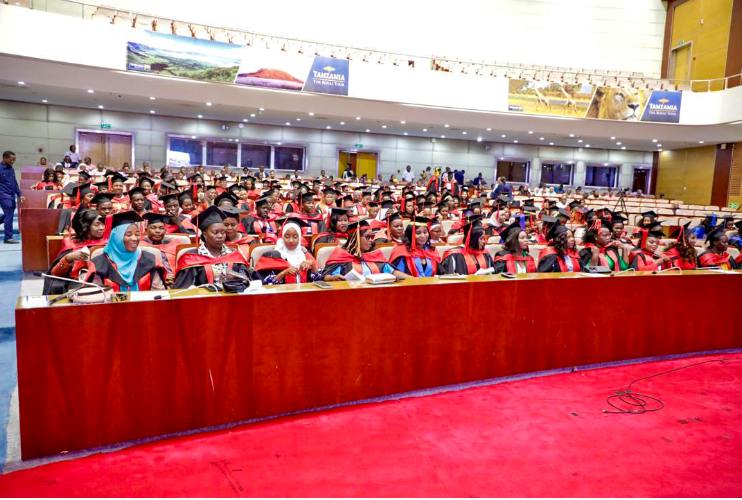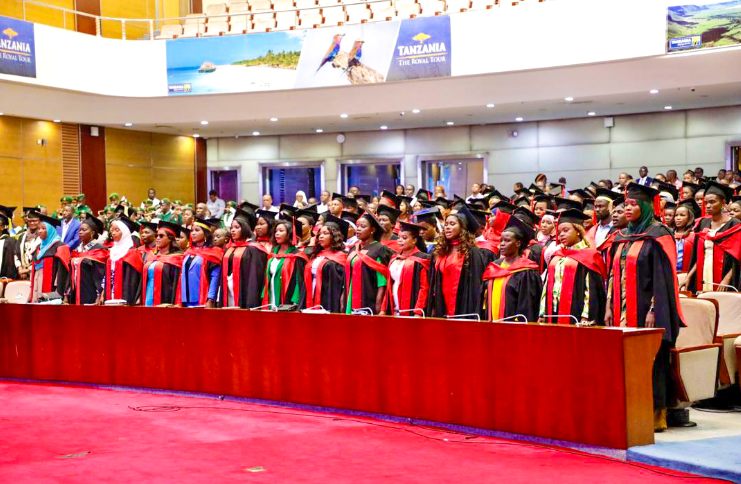
Tanzania’s university system is a treasure trove of opportunities, growth, and innovation. With a rich history, diverse academic programs, and an unwavering commitment to excellence, Tanzania’s universities are not only shaping the future of the country but also contributing to global knowledge.
In this post, we delve into the hidden gems of Tanzania’s higher education system, exploring the unique aspects that make it stand out on the African continent and beyond.
1. Diverse Academic Programs and Specializations
Tanzania’s universities offer a wide range of academic programs that cater to the ever-evolving demands of the job market. From engineering and medicine to the arts, business, and social sciences, these institutions provide students with the tools they need to succeed in various fields. However, the hidden gems lie in the unique programs that blend traditional knowledge with modern innovation.
For instance, institutions like the University of Dar es Salaam (UDSM) offer specialized programs in sustainable development, wildlife conservation, and African studies, reflecting Tanzania’s rich cultural heritage and natural resources. These programs not only equip students with technical skills but also instill a deep understanding of their local environment, making them leaders in fields critical to the country’s growth.
2. Research and Innovation Driving Change
Tanzania’s universities are becoming hubs of research and innovation, with faculty and students alike contributing to solutions for pressing national and global challenges. From healthcare to agriculture and renewable energy, Tanzanian universities are at the forefront of research that addresses the country’s development needs.
The Sokoine University of Agriculture (SUA), for example, is renowned for its cutting-edge research in agriculture, focusing on sustainable farming practices and food security. Meanwhile, Muhimbili University of Health and Allied Sciences (MUHAS) has made significant strides in medical research, particularly in combating tropical diseases that affect millions of people in Africa.
These research efforts not only benefit Tanzania but also have global implications, positioning the country as a key player in international academic and scientific circles.
3. Emphasis on Community Engagement and Social Responsibility
One of the most significant aspects of Tanzania’s universities is their focus on community engagement and social responsibility. Many institutions actively involve students in projects that aim to improve the lives of people in local communities. This is particularly evident in the work done by universities like St. Augustine University of Tanzania (SAUT), which encourages students to participate in community service programs that address issues such as education, health, and poverty alleviation.
By fostering a culture of social responsibility, Tanzanian universities are not just producing graduates with academic credentials but also compassionate leaders who are ready to make a positive impact on society.
4. Affordable Education with High Impact
Tanzania is one of the few countries in Africa where higher education remains relatively affordable, making it accessible to a large portion of the population. While tuition fees vary depending on the program and institution, the cost of education in Tanzania is often lower compared to many other African countries and international institutions.
This affordability, combined with the government’s support for higher education, ensures that more students have the opportunity to pursue their academic dreams without the burden of excessive debt. Scholarships and financial aid programs further increase access, making Tanzania’s universities a viable option for students from diverse socioeconomic backgrounds.
5. International Collaboration and Global Recognition
Tanzania’s universities are not isolated; they actively collaborate with institutions around the world to enhance the quality of education and research. Partnerships with universities in Europe, the United States, and Asia allow Tanzanian students and faculty to engage in exchange programs, joint research initiatives, and collaborative academic projects.
This global engagement enhances the quality of education in Tanzania, exposes students to international best practices, and prepares them for the global job market. Institutions like UDSM and Nelson Mandela African Institute of Science and Technology (NM-AIST) have established strong ties with international universities, making Tanzania’s higher education system more competitive and globally recognized.
6. Support for Entrepreneurship and Innovation
Tanzania’s universities are increasingly fostering a spirit of entrepreneurship among students. With the rise of the digital economy and the increasing need for innovation, many universities have set up incubators, innovation hubs, and entrepreneurship programs to nurture young talent.
For example, Dar es Salaam University College of Education (DUCE) has a thriving entrepreneurship program that empowers students to start their own businesses and contribute to the country’s economic growth. These initiatives not only support the personal development of students but also contribute to the broader goal of creating job opportunities and reducing unemployment in the country.
7. Beautiful Campuses and Student Life
While academics and research are at the core of Tanzania’s universities, student life is equally important. Many Tanzanian universities are located in picturesque settings, offering students a vibrant campus life surrounded by natural beauty. From the serene beaches of Dar es Salaam to the lush green hills of Mbeya, students enjoy a unique and inspiring environment in which to live and learn.
Tanzania’s universities also provide a range of extracurricular activities, from sports and cultural clubs to leadership development programs. This holistic approach to education ensures that students graduate not only with academic knowledge but also with valuable life skills and experiences.

Conclusion
Tanzania’s university system is more than just a place for academic learning; it is a dynamic force driving the country’s development and preparing students to tackle global challenges.
With their diverse programs, research excellence, community engagement, and international collaborations, Tanzania’s universities are truly hidden gems that are making a significant impact both locally and globally.
As these institutions continue to evolve and expand, they will undoubtedly play an even greater role in shaping the future of Tanzania and contributing to the advancement of knowledge and innovation worldwide.
If you are looking for a place where quality education meets opportunity, Tanzania’s universities are definitely worth considering.
Related articles
- Education system in tanzania 2024
- Tanzania Education Statistics
- Top 10 Educational Reforms Shaping Tanzania’s Future
- Exploring the Best Educational Institutions in Tanzania for 2024
- Unlocking Educational Opportunities in Tanzania: What You Need to Know
- Top 10 Educational Reforms Shaping Tanzania’s Future
- Unlocking Educational Opportunities in Tanzania: What You Need to Know
- Semester One Exam Schedule for Tanzanian Universities: Key Dates and Updates


